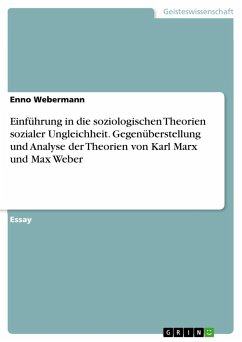This book gives a clear synthesis of Marx's theory of Capitalism and its relation with economic theory as it evolved over the course of the last 300 years. The analytical aspects of Marx's theory are rigorously expressed by means of the technique of Input-Output Analysis, which is explained starting from the most elementary level. Parts I and II of the book address the philosophical-methodological foundations of Marx's scientific endeavor (his Historical Materialism and his Dialectical Method) and his scientific theory of capitalist society, respectively. Part III contains our critique of Marx's theory of Capitalism and contrasts it to Walras' influential theory. Finally, Part IV contains a synthesis of Marx's political thought and praxis, which had enormous effects over the course of the 20th century, and our critique thereof.
Bitte wählen Sie Ihr Anliegen aus.
Rechnungen
Retourenschein anfordern
Bestellstatus
Storno








